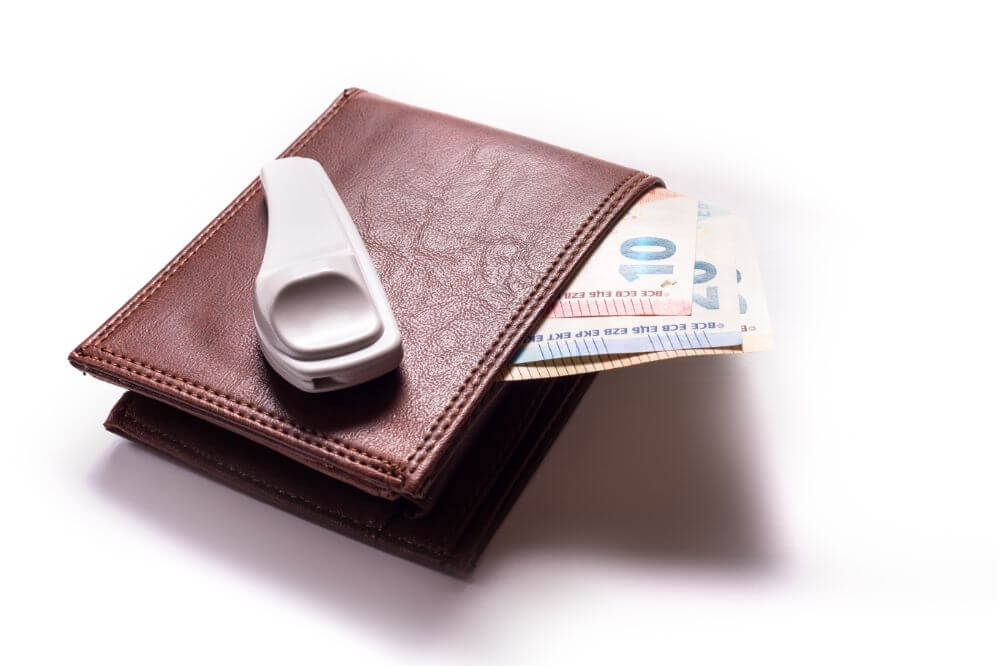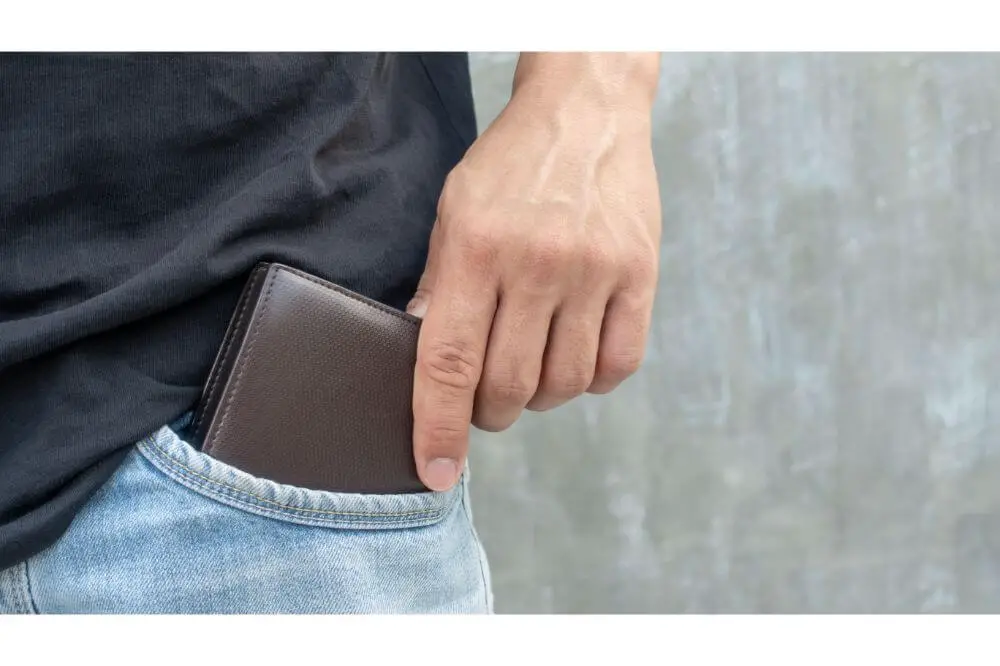What is an RFID wallet? Do RFID wallets work? Let’s look at whether investing in an RFID wallet is worth it.
Technology has come a long way, which can clearly be seen in how we pay for our purchases. Online shopping is common, but even shopping in person, many don’t carry much cash and instead use credit or debit cards.
Do RFID Wallets Work?
Moreover, most of us no longer have to enter a PIN number to make payments. Instead, we just tap our card against the payment terminal, and the payment goes through.
This technology, known as RFID technology, is fast and convenient. However, this convenience comes with certain risks, including risks to your financial security. For example, criminals have developed ways to read these payment cards and steal your information, withdraw your money or make purchases with your card.

The RFID wallet was invented to protect you from having your information stolen. However, what is an RFID wallet? Do RFID wallets work? Let’s look at whether investing in an RFID wallet is worth it.
What is RFID?
RFID is radio frequency identification, and we are talking about debit and credit cards. RFID-enabled cards enable you to pay wirelessly without your debit or credit card leaving your hands.
This is the tap feature—you tap your card against the reader or terminal to pay without inserting or swiping it and entering your PIN number. Instead, there is a small radio transponder and a chip containing all the necessary information.
When you get near the payment terminal, an electromagnetic interrogation pulse causes the tag or chip to transmit digital data. Of course, this tap pay feature is swift and convenient, but it also has risks.
The risk is that somebody will steal your financial information and money. Thieves can walk around with electromagnetic scanners, illegal payment terminals that can scan, record, and steal information from RFID-enabled payment cards.
For example, a thief with the appropriate machinery and technology can technically walk past you and steal your information—without the card leaving your wallet or the wallet leaving your pocket.
For the record, today, most debit and credit cards have this wireless tap feature. Therefore, those who use payment cards in theory put themselves at risk every time they go out.
If this was a serious problem, it seems likely to us that the banks would be all over this problem. In reality it seems that the incidence of theft this way is very low, and that there are other levels of security in bank systems (strong encryption for a start) that make this a rare issue.
Nevertheless, many people are concerned enough about this to want to be sure.
Which brings us to the RFID wallet.
What is an RFID Wallet?
An RFID wallet or an RFID-blocking wallet is a wallet that features security measures to prevent electromagnetic signals from passing through them.
If electromagnetic signals cannot pass through the wallet, criminals can’t scan your cards and steal your information.
These wallets use a technology known as the Faraday cage, an electromagnetic enclosure that makes your cards opaque in terms of electromagnetic signals. These Faraday cages are usually made with copper, silver, or nickel.
This disrupts or blocks electromagnetic signals if your payment cards are surrounded by this protection. This prevents crooks from successfully using their illegal scanners to steal your info and money.

Do RFID Wallets Work?
Many people wonder how a wallet lined with some metallic mesh could stop electromagnetic signals from passing through. We don’t want to get too deep into the technology, but it is based on simple science. As discussed above, electromagnetic signals cannot pass through certain materials, such as copper and silver.
A well-constructed Faraday cage will block electromagnetic signals from passing through, which means that RFID wallets should work, in theory.
However, theory is not reality, and some issues must be discussed.
In a consumer reports test a few years ago, 10 such RFID wallets were tested for efficacy. Unfortunately, this study showed that although all blocked a certain amount of the electromagnetic signal, none were 100% effective.
One reason is that for Faraday cage to work 100%, it needs to encase the debit and credit cards on all sides.
The issue with wallets is that they block electromagnetic signals from passing through the rear and front of the wallet but not on the edges.
A signal can still get through if a Faraday cage is not 100% enclosed. Some RFID wallets are built better than others, but none work 100%. However, at the same time, although these RFID wallets may not be 100% effective, they offer you some protection.
The study noted also determined that there was a difference between brand names. In addition, the construction quality of the wallet and how much you spend on it will make a difference. The higher-end versions have better constructed Faraday cages that offer higher degrees of protection.
Other Ways to Protect Yourself from RFID Theft
There are other steps to protect yourself if you are concerned about RFID theft.
Go to your bank and request that your cards not be RFID enabled. If your cards don’t have RFID capability, there’s no problem.
You can always build a Faraday cage wallet using duct tape and aluminum foil. There are tutorials on the internet on how to do this. Although a duct-taped wallet may not look flashy, it does work.
You will get funny looks though.
Some people use metallic tins to carry around their RFID payment cards, such as an Altoids tin. These can easily carry a few cards, and they’re made of metal, with no gaps where an electromagnetic signal can pass through.
Conclusion
As you can see, while RFID wallets work to a certain degree, they aren’t perfect. We recommend investing in a high-quality model if you decide to go for an RFID wallet.
As an alternative, you could always not use RFID cards, although that’s harder and harder these days.
The actual incidence of RFID theft does seem to be very low however, so we wouldn’t lose a lot of sleep over this.
All product names, logos, brands, and trademarks are the property of their respective owners
